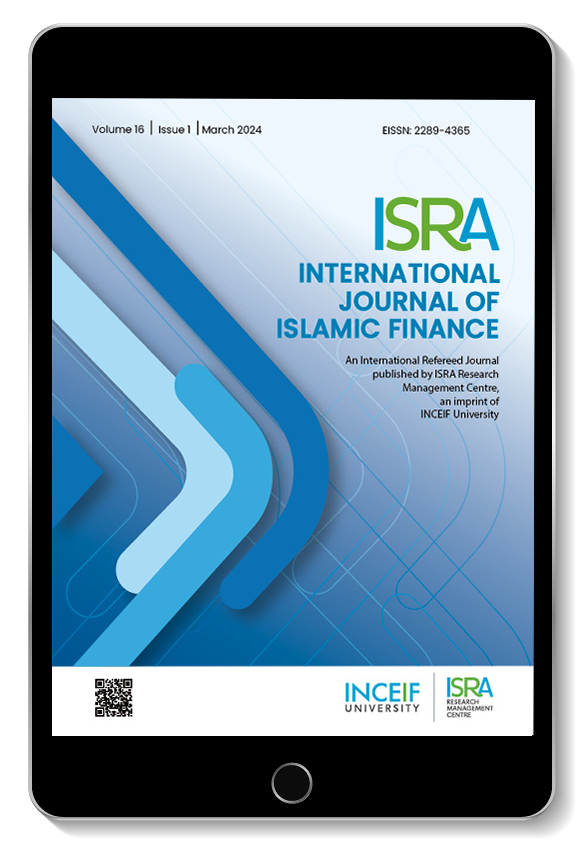The regulation of Islamic banking in Mauritius
IF 1.4
Q2 BUSINESS, FINANCE
引用次数: 3
Abstract
Purpose The purpose of this paper is to analyse the main components of the regulatory framework for Islamic banking in Mauritius. This small island state of the Indian Ocean aspires to host Islamic banking products while diversifying the range of financial services offered within its hybrid jurisdiction despite having a minority Muslim population. The study also aims at drawing some comparisons with the well-established regulatory framework that applies to conventional banking. Design/methodology/approach In this qualitative analysis of the regulatory framework of Islamic banking in Mauritius, the doctrinal approach is adopted. This method relies principally on a scrutiny of the provisions of the law and delves into the primary and secondary sources of law guiding Islamic banking practices in the Mauritian jurisdiction. Findings The research study concludes that, with the view of encouraging investors into Islamic banking, policymakers took some regulatory initiatives but these remained timid. These initiatives relied too often on borrowing from the regulatory framework in place for conventional banking practices instead of regulating the area within its own precepts. Prospects for expanding Islamic banking exist but will require more audacious regulatory steps so as to secure the environment within which Islamic banking is to flourish. In the meantime, the industry is in a status quo position with no further legal action currently being envisaged to re-launch this area. Originality/value This research study is among the first generated specifically on the regulatory framework of Islamic banking in a small financial centre that operates mostly offshore financial activities. Previous research work either focused on the empirical analysis or on reviewing the challenges and the prospects but no study has provided an in-depth analysis of the regulatory provisions circumscribing Islamic banking. This lacuna is being filled up by this research paper which highlights the regulatory needs of Islamic banking and comments on the inclusion of and the need for specific rules related to Islamic finance instead of relying on the overlap with conventional banking laws.毛里求斯对伊斯兰银行的监管
目的本文的目的是分析毛里求斯伊斯兰银行监管框架的主要组成部分。这个印度洋上的小岛国渴望接纳伊斯兰银行产品,同时在其混合管辖范围内提供多样化的金融服务,尽管该国穆斯林人口占少数。该研究还旨在与适用于传统银行业的成熟监管框架进行一些比较。在对毛里求斯伊斯兰银行监管框架的定性分析中,采用了理论方法。这种方法主要依靠对法律规定的审查,并深入研究毛里求斯管辖范围内指导伊斯兰银行业务的主要和次要法律来源。该研究得出的结论是,为了鼓励投资者进入伊斯兰银行业,政策制定者采取了一些监管举措,但这些举措仍然不够大胆。这些举措往往依赖于借鉴传统银行业务的监管框架,而不是在自己的规则范围内对该领域进行监管。扩大伊斯兰银行业的前景是存在的,但需要更大胆的监管措施,以确保伊斯兰银行业蓬勃发展的环境。与此同时,该行业处于现状,目前没有进一步的法律行动来重新启动这一领域。原创性/价值本研究是第一批专门针对一个主要经营离岸金融活动的小型金融中心的伊斯兰银行监管框架进行的研究之一。以前的研究工作要么集中在实证分析上,要么集中在回顾挑战和前景上,但没有研究对限制伊斯兰银行的监管规定进行深入分析。这份研究报告强调了伊斯兰银行的监管需求,并评论了与伊斯兰金融相关的具体规则的纳入和必要性,而不是依赖于与传统银行法的重叠,从而填补了这一空白。
本文章由计算机程序翻译,如有差异,请以英文原文为准。
求助全文
约1分钟内获得全文
求助全文
来源期刊

ISRA International Journal of Islamic Finance
BUSINESS, FINANCE-
CiteScore
3.40
自引率
17.40%
发文量
18
审稿时长
20 weeks
期刊介绍:
It is the aspiration of the editorial committee that IJIF achieves the highest rank in quality and substance. It is thus our aim that the journal be carried in the Thompson Reuters’ ISI and Scopus databases. By ensuring high standards in articles published in Islamic finance we ensure that further innovation and research is carried out and promoted in the Islamic finance industry and academia. IJIF publishes 2 issues per annum.
 求助内容:
求助内容: 应助结果提醒方式:
应助结果提醒方式:


